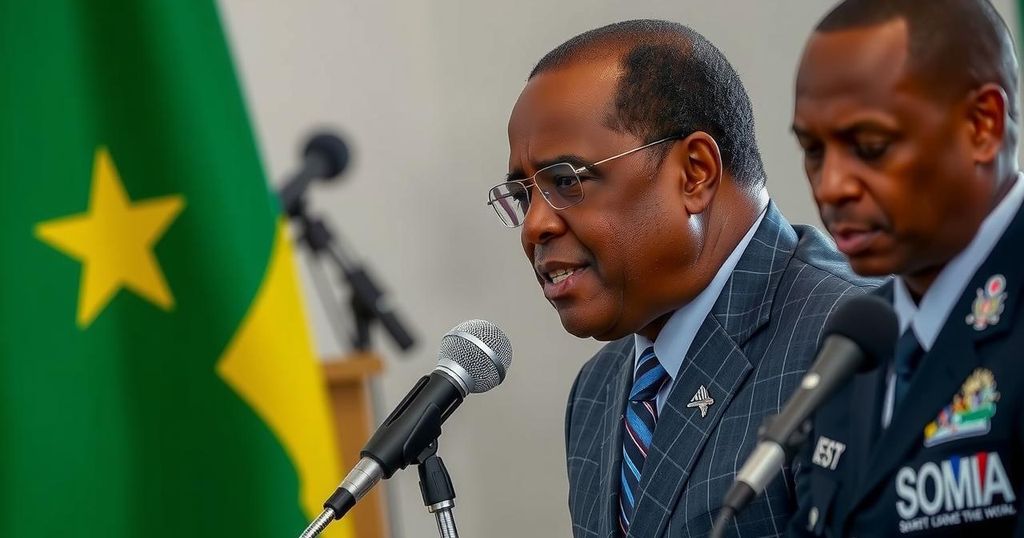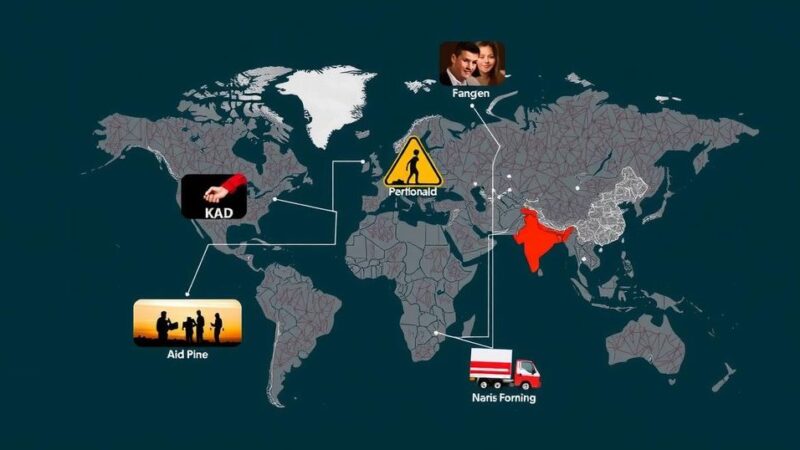Somalia’s President Hassan Sheikh Mohamud seeks Kenya’s mediation in a domestic dispute involving Jubaland’s President Ahmed Madobe, who opposes proposals for term extensions of federal leaders. This move has ignited criticism over the authenticity of Somalia’s sovereignty as foreign intervention raises concerns regarding internal governance and political stability.
On October 27, 2023, Jubaland’s President Ahmed Mohamed Islam, commonly referred to as Ahmed Madobe, arrived in Nairobi after being transported from Kismayo by a Kenyan government flight. His visit involved discussions with Kenyan President William Ruto and Kenya’s head of intelligence, Noordin Haji. This meeting was prompted by a request from Somalia’s President Hassan Sheikh Mohamud, who sought assistance from Kenya to persuade Madobe to accept an unconditional extension of the terms for certain Federal Member State (FMS) leaders. This proposal is viewed by many as a tactic to bolster alliances among FMS leaders as President Mohamud’s own term approaches its conclusion. Despite the political rationale behind this move, analysts have interpreted President Mohamud’s decision to seek foreign mediation as a misjudgment, reflecting his inability to independently negotiate with Somalia’s regional leaders. The involvement of Kenya has raised concerns among Somali political figures, especially within the diaspora in Kenya, who perceive it as a challenge to Somalia’s sovereignty. The logistical issues faced by Madobe have kept him in Nairobi longer than planned, delaying his return to Kismayo. This diplomatic engagement arises amid heightened tensions between the Somali federal government and Ethiopia, following allegations of Ethiopian interference in Somalia’s domestic affairs. Overall, Mohamud’s approach to seeking Kenya’s help signifies the increasing complexity and fragility of Somalia’s political landscape as it contends with both domestic disputes and international relationships.
The situation in Somalia is characterized by ongoing political strife, particularly regarding the relationships between the federal government and regional leaders. President Hassan Sheikh Mohamud, in office during a pivotal time, is attempting to manage these dynamics while facing pressure related to his impending term expiration. The proposal for extensions to FMS leaders, which Madobe opposes, is seen by many as a scheme to secure necessary political support and foster alliances to prolong his governance. Moreover, the relationship between Somalia and its neighboring countries has been deteriorating, specifically with Ethiopia, which further complicates the political equation.
In summary, the involvement of Kenya in Somalia’s internal political struggles indicates both the fragility of President Mohamud’s leadership and the escalating complexities within Somali politics. As regional tensions grow and domestic challenges remain unresolved, the reliance on foreign mediation may undermine Somalia’s sovereignty while revealing the difficulties faced by leaders in navigating their political priorities amid external pressures. The outcomes of the discussions between Madobe and Ruto will be significant in determining the future political landscape in Somalia and its relations with neighboring countries.
Original Source: www.garoweonline.com






